Henry Mucci graduated from the U.S. Military Academy at West Point, Class of 1936. The account of the liberation of American POWs at Cabanatuan Prison was featured in the motion picture “The Great Raid” where he was portrayed by actor Benjamin Bratt. Mucci retired with disability in 1947 as a U.S. Army Colonel and died in 1997, never living to see the 2005 re-creation of his heroic mission.
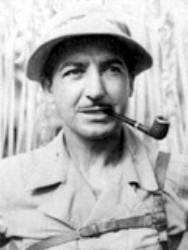
–
Cemetery:
Awards Received
-
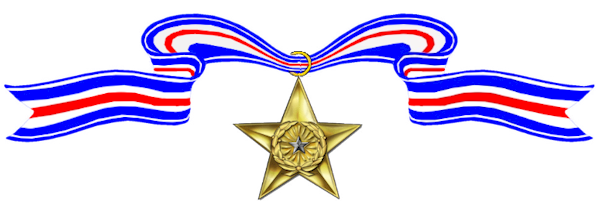
Silver Star
-

Distinguished Service Cross
-
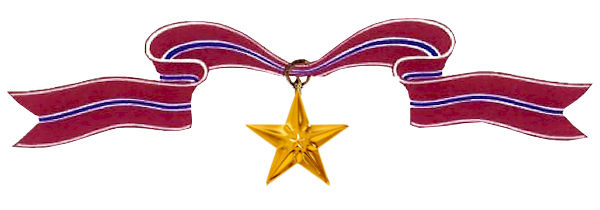
Bronze Star Medal
-
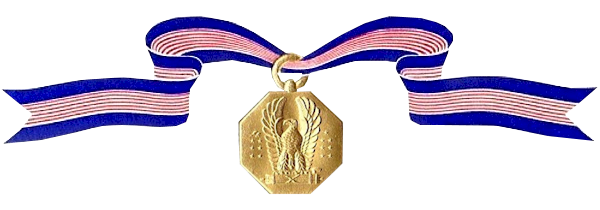
Soldier’s Medal
-
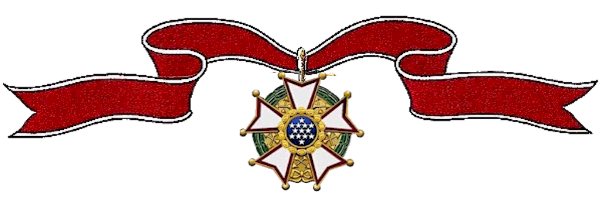
Legion of Merit
-

Bronze Star Medal
-
Silver Star
Service:
United States ArmyRank:
Lieutenant Colonel (Infantry)Batallion:
6th Ranger Infantry BattalionAction Date:
World War II
United States Military Academy Register of Graduates(Citation Needed) – SYNOPSIS: The President of the United States of America, authorized by Act of Congress July 9, 1918, takes pleasure in presenting the Silver Star to Lieutenant Colonel (Infantry) Henry Andrew Mucci (ASN: 0-20374), United States Army, for gallantry as Commanding Officer of the 6th Ranger Infantry Battalion (Separate), in action against the enemy in the Pacific Theater of Operations, in 1944 and 1945. The gallant actions and dedicated devotion to duty demonstrated by Lieutenant Colonel Mucci, without regard for his own life, were in keeping with the highest traditions of military service and reflect great credit upon himself and the United States Army.
-
Distinguished Service Cross
Service:
United States ArmyRank:
Lieutenant Colonel (Infantry)Batallion:
6th Ranger Battalion (Separate)Action Date:
January 30, 1945
Headquarters, U.S. Army Forces in the Far East, General Orders No. 39 (February 21,1945)The President of the United States of America, authorized by Act of Congress, July 9, 1918, takes pleasure in presenting the Distinguished Service Cross to Lieutenant Colonel (Infantry) Henry Andrew Mucci (ASN: 0-20374), United States Army, for extraordinary heroism in connection with military operations against an armed enemy while serving with the 6th Ranger Battalion (Separate), in action against enemy forces on 30 January 1945, during the rescue of Allied Prisoners of War from the Cabanatuan Prison Camp in the Philippine Islands. Colonel Mucci was charged with the rescue of several hundred Americans held prisoner by the enemy. It was believed that the enemy would kill or remove the prisoners when our attack was launched in that area. Colonel Mucci promptly assembled a rescue team composed of Ranger Infantry, Scouts, guerrillas and Filipino volunteers. On 28 January, he secured guides, and moved to rendezvous with the Scouts, who reported that three thousand enemy, with some tanks, were in the stockade area. He ordered the attack at dark on 30 January. The attack was launched, and within five minutes the Rangers and Scouts entered the camp, and killed the guards. Ten minutes later all prisoners were out of the camp, and were being taken to carts previously assembled. En route, our troops encountered a force about eight hundred enemy, attacked and killed three hundred. Eight enemy tanks attacking the convoy were held off by a quickly established roadblock. The convoy proceeded through the enemy-held area and completed the evacuation of the released prisoners. Colonel Mucci’s gallant leadership, superior professional ability and outstanding personal courage contributed immeasurably to the brilliantly executed rescue of American imprisoned by the enemy. Lieutenant Colonel Mucci’s intrepid leadership, personal bravery and zealous devotion to duty exemplify the highest traditions of the military forces of the United States and reflect great credit upon himself and the United States Army.
-
Bronze Star Medal
Service:
United States ArmyRank:
Lieutenant Colonel (Infantry)Division:
SIXTH U.S. ArmyAction Date:
October 29 – 30, 1944
Headquarters, SIXTH U.S. Army, General Orders No. 237 (December 29, 1944)The President of the United States of America takes pleasure in presenting the Bronze Star Medal to Lieutenant Colonel (Infantry) Henry Andrews Mucci (ASN: 0-20374), United States Army, for heroic achievement in connection with military operations against the enemy on *****, on 29 – 30 October 1944. Having led a patrol across the Island, Lieutenant Colonel Mucci personally led an attack against the enemy emplacement up a steep muddy trail. Under intensive mortar, machine gun, and rifle fire, and against superior numbers he signaled the patrol to advance. At the same moment he rushed forward into an exposed position making it possible for his men to locate and destroy the enemy automatic weapons covering the hill. Lieutenant Colonel Mucci then personally led the final assault which resulted in the complete annihilation of the enemy.
-
Soldier’s Medal

Headquarters, 24th Infantry Division, General Orders No. 25 (October 9, 1944)The President of the United States of America, authorized by Act of Congress, July 2, 1926, takes pleasure in presenting the Soldier’s Medal to Lieutenant Colonel (Infantry), [then Major] Henry Andrews Mucci (ASN: 0-20374), United States Army, for heroism at the risk of life not involving conflict with an armed enemy at ***, on 7 March 1943. During the morning of 7 March 1943, a group of men were stranded in an LCM, the motor of which had failed about 1/4 mile offshore, while undergoing amphibious training near ***. Colonel Mucci was an observer of the operation from the shore. Private Louis Berghammer, together with the other men aboard the LCM, all of who had life jackets, were ordered to swim ashore. Private Berghammer could not swim and soon lagged behind the others. His life jacket rapidly absorbing water, he shouted for help. Colonel Mucci hearing the call for assistance swam approximately 1/4 mile offshore without hesitating to discard his clothing. Hampered by his wet clothing, and heavy with water, and at the risk of his own life he towed Private Berghammer to shore against strong currents and rough waves. Private Berghammer’s life jacket no longer held his head above water, and it was only through Colonel Mucci’s quick action and disregard of the danger to his own life, that Private Berghammer was saved from drowning.
-
Legion of Merit
Service:
United States ArmyRank:
Lieutenant Colonel (Infantry)Batallion:
6th Ranger Infantry BattalionAction Date:
March 13, 1944 – February 10, 1945
Headquarters, U.S. Army Forces in the Far East, General Order No. 91 (April 23, 1945)The President of the United States of America, authorized by Act of Congress, 20 July 1942, takes pleasure in presenting the Legion of Merit to Lieutenant Colonel (Infantry) Henry Andrews Mucci (ASN: 0-20374), United States Army, for exceptionally meritorious conduct in the performance of outstanding services to the Government of the United States as Commanding Officer, 6th Ranger Infantry Battalion, in the Southwest Pacific Area from 13 March 1944 to 10 February 1945.
-
Bronze Star Medal
Service:
United States ArmyRank:
Colonel (Infantry), [then Lieutenant Colonel]Action Date:
March 18, 1945
Headquarters, 6th Infantry Division, General Orders No. 50 (April 11, 1945)The President of the United States of America takes pleasure in presenting a Bronze Oak Leaf Cluster in lieu of a Second Award of the Bronze Star Medal to Colonel (Infantry), [then Lieutenant Colonel] Henry Andrews Mucci (ASN: 0-20374), United States Army, for heroic achievement in connection with military operations against the enemy at ****, on 18 March 1945. While inspecting front line positions and directing an attack against a strongly held enemy location, Colonel Mucci and his staff came under heavy machine gun, artillery mortar fire. He remained in an exposed position in order to observe the disposition and direct the advance of his troops, at the same time ordering those near him to protected positions. He remained at an observation post until the objective was secured and only then permitted himself his first rest in forty-eight hours. Colonel Mucci’s outstanding example of cool efficiency under fire and his devotion to duty were an inspiration to his officers and men and exemplify the highest traditions of the military service.

